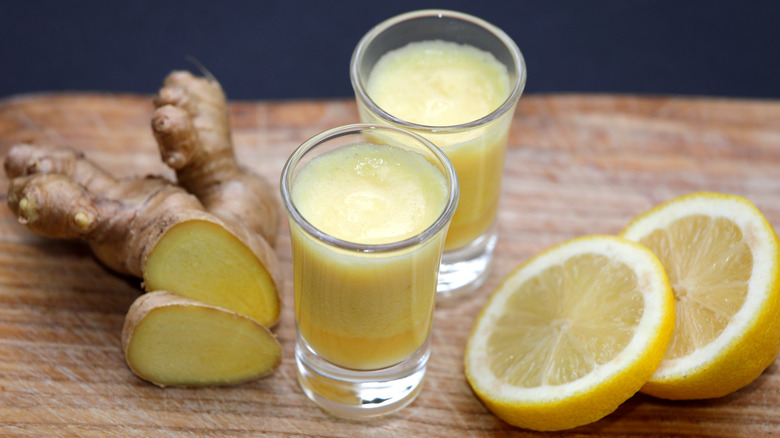Does Ginger Help With Inflammation?
Inflammation is one way the body heals itself. You may have noticed when you have a wound, it becomes inflamed. Your body sends white blood cells to the area, which is normal and healthy. However, your body can stay in a heightened state of alert, constantly producing white blood cells and antibodies. This is called chronic inflammation, and over time, it can damage tissues and organs, according to the Harvard Medical School. It might also lead to several conditions, such as osteoarthritis and other forms of arthritis that often result in pain, per the Cleveland Clinic.
Changing your diet is one way to combat chronic inflammation. Foods like sugar, refined carbohydrates, and processed meats can increase glucose levels in your blood, which can promote inflammation. One way to help lower inflammation is to avoid those foods and increase your intake of foods that have antioxidant qualities. Just about any kind of berry, onions, red grapes, leafy greens, green tea, and turmeric are among several options that can help (via the Harvard Medical School).
Ginger is a powerful antioxidant
Ginger is a food you should add to your diet if you want to lower inflammation. Its antioxidant features are beneficial because they help the body recover from the damage done by free radicals, which can lead to inflammation, per Medical News Today. In addition, some of the compounds in ginger work in the same way that some COX-2 inhibitors do. COX-2 inhibitors are non-steroidal anti-inflammatory drugs that are often used to treat pain, per Healthline.
Research also shows that ginger offers some relief for pain associated with inflammation. A small 2015 study published in the journal Osteoarthritis and Cartilage revealed that ginger was a "modestly efficacious and reasonably safe treatment" for osteoarthritis. In addition, a study from 2010 showed that ginger exhibited potential for offering relief from inflammation. Best of all, it's easy to add ginger to your diet — you can drink ginger tea, add ginger root to recipes, or take it in capsule form (via WebMD).


